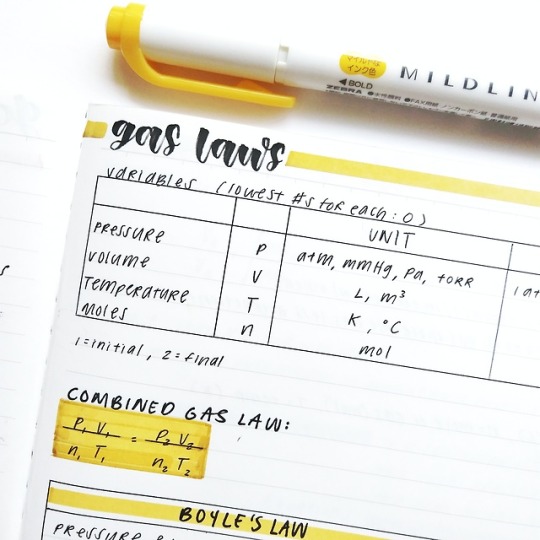Text
You’re busy doubting yourself while so many people are intimidated by your potential
98K notes
·
View notes
Text
dad: why are you drinking coffee at 10pm?
me: time is an illusion. once you realize that, you can transcend, and live in bliss
me: *takes sip*
me: also i have a 10 page paper due in the morning that i haven’t started
805K notes
·
View notes
Text
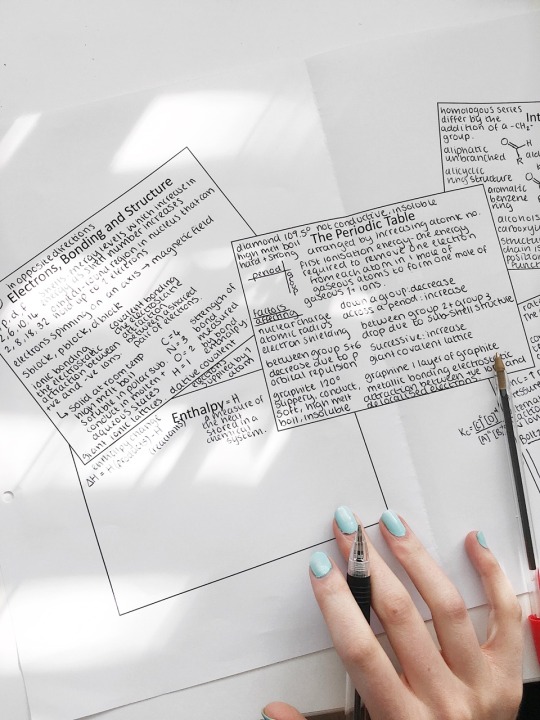
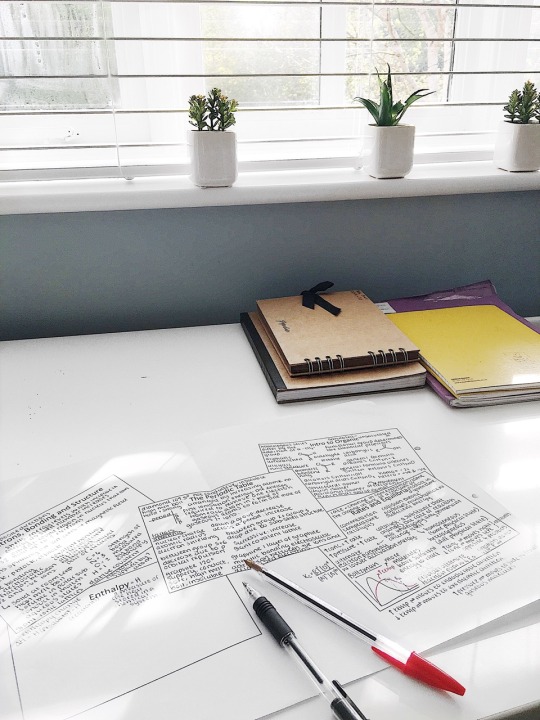
23.04.19 | 17:24
Doin 4 Alevels feelin like Thor in infinity war holding open that bloody iris in the heat of a burning star so giant Peter Dinklage can melt some space steel bc that’s the amount of pressure I’m under I swear
5K notes
·
View notes
Text

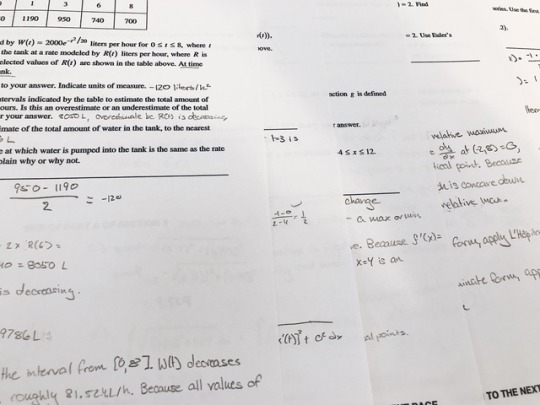
100 days of productivity: day 20
starting to panic but at least i’m being productive
#studying#studyblr#100 days of productivity#high school#school#productivity#calculus#ap calc#ap calc bc
39 notes
·
View notes
Text

100 days of productivity: day 19
i have been so busy these last few weeks i haven’t been able to keep up. i have my very first ap exam in a couple days and i’m beyond nervous, but i’m just trying to remind myself that it’ll be okay. lots of studying these past few weeks, hope the grind pays off (,:
#collegeboard taking over my life#studying#studyblr#ap calc#100 days of productivity#high school#school#productivity#notes#calculus#ap calc bc
9 notes
·
View notes
Text
hey everyone! i made this survey for one of my class final projects, and i’d greatly appreciate it if you could take it and share. i’m trying to get as many people as possible to take it. thank you in advance!
2 notes
·
View notes
Text
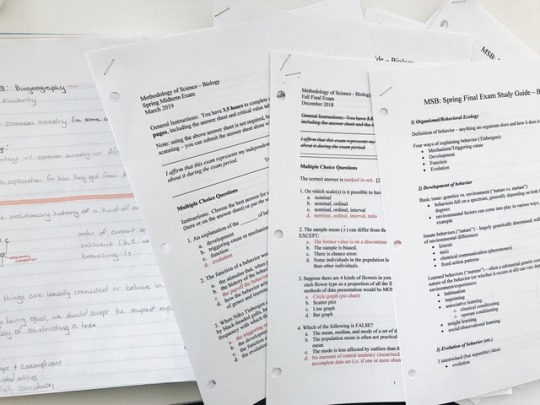
100 days of productivity: day 18
took the first part of my core final. i’m taking pt. 2 tomorrow and then all i’ll have left for the class is my final project. i made a survey for the project and i’d greatly appreciate it if you guys could take it: https://bit.ly/2veTU4L (((:
#studying#studyblr#100 days of productivity#high school#school#productivity#statistics#biology#sciences#study#exams#finals#final exams
0 notes
Text

100 days of productivity: day 17
i am done with calc except for the ap exam coming up. im super nervous ahaha.
17 notes
·
View notes
Photo
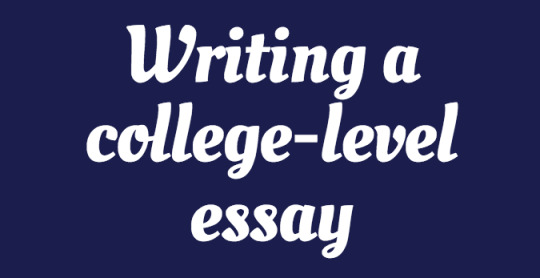
Writing is a skill that many people struggle with, and when it comes to academic essays, many people are so anxious about writing that they don’t even know where to start. Many find it easier to begin when they have a clear idea of what they should and should not be doing, so I’ve compiled some tips to hopefully alleviate your essay-induced anxieties.
1. Hooks—you don’t need one. In fact, I would argue that you shouldn’t have one. They’re a juvenile method of starting a paper and, in many cases, they involve broad generalizations that aren’t even true. “Since the beginning of literature, people have been interested in how evil characters are portrayed in novels.” Have they, really? When exactly is the so-called “beginning” of literature? What is your proof that a largely illiterate society cared about the way in which characters were depicted when people like Defoe and Behn were penning some of the first English-language novels? One could argue that most people now don’t even care about how characters are depicted in novels. Get my point? It’s juvenile, sounds lazy, and you can skip all of this by just getting to the damn point by opting to begin your essay rather than constructing a flowery hook.
2. Your thesis. In most cases, your thesis should make an argument of your own, and it should be an argument that you can prove with evidence. You could have a spectacular sounding thesis that is saturated with sophisticated claims and language, but it doesn’t matter how good your thesis sounds if you don’t have textual evidence to back it up. Further, you need to make sure that your thesis answers the question the prompt is asking—if the prompt asks you to use Rousseau’s Discourse on Inequality to access the actions of Frankenstein’s creature, you better make sure that you directly and clearly relate those two texts in your thesis statement. When constructing your thesis statement, make sure that you are addressing the prompt fully, and ensure that you have adequate evidence to back up your claims. You don’t want to get too far into an essay only to realize that you don’t have enough evidence for your argument.
3. Creating a voice in your writing. Have a strong, confident voice. Sound sure of yourself. Don’t say things such as, “This might prove why this character does this.” Make a confident argument—explain in a clear and confident manner the way in which your evidence supports your thesis argument. This is easy to do once you learn how to integrate appropriate quotes into your essays.
4. Using quotes. Quotes are necessary for most forms of essay writing; without them, your argument is weak. Provide context when introducing a quote—don’t simply throw a quote at your reader with no context or explanation. Use shorter quotes when possible, and integrate them into your sentences. Try not to let a quote stand alone as its own sentence. Here’s an example of successfully integrating appropriate quotes into your writing:
“However, Caliban openly attempted to rape Miranda, and when Prospero mentions this, Caliban enthusiastically states that if Prospero hadn’t stopped him, he would have “peopled else this isle with Calibans” (1.2.420-421). Prior to this attempted rape, Prospero and Caliban apparently shared a reciprocal relationship, wherein Prospero taught Caliban English and, in return, Caliban “showed [him] all the qualities o’ th’ isle” (1.2.403).”
As you can see above, quotes are used to provide succinct evidence for what you’re talking about. They show that you have read and possess a clear understanding of the text, and they provide textual evidence that strengthens your argument.
5. The structure of your essay. Your essay does not need to be a cookie-cutter five paragraph monstrosity that has been drilled into your brain since 8th grade; you can switch it up as you see necessary. It’s not necessarily a bad thing to have paragraphs of varying lengths, multiple paragraphs discussing the same argument, or even to bring up previously stated topics and arguments in order to further explore what you’re talking about. Don’t feel obligated to constrain yourself to formulaic writing when frankly, it often isn’t the best way to write a paper. Make your argument in the most natural way possible, and if that required seven body paragraphs, then so be it.
6. Editing your essays. I advise reading your essay out loud when editing. In your initial read-through, check for grammatical mistakes and typos. These mistakes will be obvious if you read your paper aloud. After ensuring that your paper is free from technical errors, reread it again to check how one idea transitions to the next. Does your essay have clear and natural transitions from topic to topic, or are there abrupt shifts that need to be worked out? Finally, make sure your paper adequately proves the overall argument you’re attempting to make. Is your argument the driving force in your paper, or do you make unnecessary digressions? These are all important things to consider before turning in your final essay.
Remember, writing essays is something that, with practice, can become quite easy. Don’t treat writing an essay as some kind of foreign, impossible task; all writing an essay really involves is making an argument and attempting to prove your argument with evidence. If you can do this, then writing becomes substantially easier. Good luck!
4K notes
·
View notes
Text
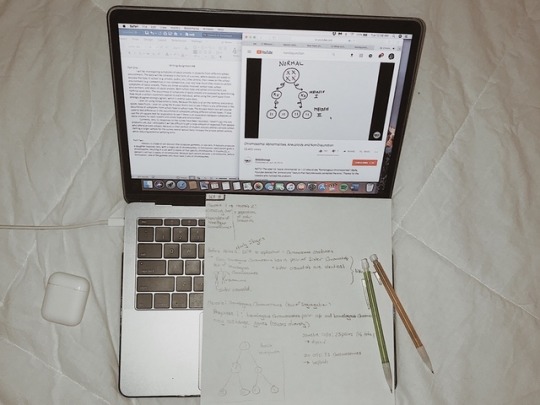
100 days of productivity: day 16
it’s been such a busy week. i’m leaving for a competition tomorrow, which is so inconvenient because this happened to be one of my busiest weeks this semester.
47 notes
·
View notes
Text
i wrote half an essay in 20mins today when it’s not even due for another 4 weeks, reblog this to have a productivity lightning bolt strike you like it did me today
160K notes
·
View notes
Text

To help move away from summary and toward ANALYSIS, it’s important to incorporate strong verbs into your writing when discussing the writer’s rhetorical choices. Below is a list of verbs that are considered weak (imply summary) and a list of verbs that are considered strong (imply analysis). Strive to use the stronger verbs in your essays to help push yourself away from summary and toward analysis: ex “The writer flatters…” NOT “The writer says…”
Weak Verbs (Summary):
says
explains
relates
states
goes on to say
shows
tells
this quote shows
Strong Verbs (Analysis):
Argues, admonishes, analyzes, compares, contrasts, defines, demonizes, denigrates, describes, dismisses, enumerate, expounds, emphasizes, establishes, flatters, implies, lionizes, lists, minimizes, narrates, praises, processes, qualifies, questions, ridicules, suggests, supports, trivializes, vilifies, warns
Powerful and Meaningful Verbs to Use in an Analysis (Alternatives to Show):
Acknowledge, Address, Analyze, Apply, Argue, Assert, Augment
Broaden
Calculate, Capitalize, Characterize, Claim, Clarify,Compare, Complicate, Confine, Connect, Consider, Construct, Contradict, Correct, Create, Convince, Critique
Declare, Deduce, Defend, Demonstrate, Deny, Describe, Determine, Differentiate, Disagree, Discard, Discover, Discuss, Dismiss, Distinguish, Duplicate
Elaborate, Emphasize, Employ, Enable, Engage, Enhance, Establish, Evaluate, Exacerbate, Examine, Exclude, Exhibit, Expand, Explain, Exploit, Express, Extend
Facilitate, Feature, Forecast, Formulate, Fracture
Generalize, Group, Guide
Hamper, Hypothesize
Identify, Illuminate, Illustrate, Impair, Implement, Implicate, Imply, Improve, Include, Incorporate, Indicate, Induce, Initiate, Inquire, Instigate, Integrate, Interpret, Intervene, Invert, Isolate
Justify
Locate, Loosen
Maintain, Manifest, Manipulate, Measure, Merge, Minimize, Modify, Monitor
Necessitate, Negate, Nullify
Obscure, Observe, Obtain, Offer, Omit, Optimize, Organize, Outline, Overstate
Persist, Point out, Possess, Predict, Present, Probe, Produce, Promote, Propose, Prove, Provide
Qualify, Quantify, Question
Realize, Recommend, Reconstruct, Redefine, Reduce, Refer, Reference, Refine, Reflect, Refute, Regard, Reject, Relate, Rely, Remove, Repair, Report, Represent, Resolve, Retrieve, Reveal, Revise
Separate, Shape, Signify, Simulate, Solve, Specify, Structure, Suggest, Summarize, Support, Suspend, Sustain
Tailor, Terminate, Testify, Theorize, Translate
Undermine, Understand, Unify, Utilize
Validate, Vary, View, Vindicate
Yield
20K notes
·
View notes
Text
On Applying to 20+ Colleges
I completed 24 college applications, submitted 17 (to Princeton, Cornell, Vanderbilt, Rice, Amherst, Georgetown, Emory, UCLA, UC Berkeley, University of Michigan, UNC-Chapel Hill, UVA, University of Pittsburgh, Williams, Washington University in St. Louis, Harvard and Yale) and received admission to all except the last four.
N.B. Some of this info may be dated/inaccurate and 100% of it is tinged w/ my own bias.
Things To Think About
Why do you want to apply to so many colleges?
If it’s hubris (i.e. “I want to collect admissions offers like trophies”) or fear (i.e. “If I submit more applications, I’m less likely to be shut out from every school I apply to"), stop and reevaluate. I applied to Vanderbilt even though I knew I’d never want to head south. The reason? It traditionally takes a lot of kids from my HS. Yeah, don’t be like me.
Do you really want to spend all that money?
I ended up wasting $2500 (and that’s a conservative estimate) on 17 schools. I’ll only be attending one college in the fall.
That said…it can be done.
General Tips
The “Why Us” essay isn’t asking “why would you choose our college?” so much as “why should our college choose you?” Emphasize how you’ll contribute to the college—inside the classroom and out—by referencing specific programs, classes, and extracurriculars.
Creating a template is a major time-saver. Once you have an effective “skeleton,” all you have to do is insert school-specific details.
Stay organized.
Create a spreadsheet. These were my columns: College Name, Application Type, Application & Aid Deadline, Standardized Test Report, Transcript & SS Form, Recommendation Letter Deadline, Creative Writing Supplement (Y/N), Interview (Y/N), Merit Scholarship (Y/N), CSS Profile, FAFSA, Sticker Price, Response Date.
If you use Google Drive, create a folder for each college.
Consider making a CV/resume. Keep it short (~1 page). Possible uses: upload as a part of your application; hand it to alumni interviewer.
Miscellaneous
Don’t apply to Georgetown unless you really really like it. There’s a separate application (not Common App) that’s cumbersome to fill out, and you can’t access it until you pay the application fee (which also happens to be p expensive)
Optional essays are NEVER optional. Hopefully, this is obvious.
The more selective publics (UC Berkeley, UCLA, UVA, UNC, UMich) are more holistic than you think. They reject high stats kids on the reg (anecdote: a dude from my school who got into Caltech didn’t get into Berkeley; another who got into Cornell didn’t get into UMich) so PAY ATTENTION to the essays.
Alumni interviews don’t matter AT ALL unless you make a terrible impression—or possibly if you’re a borderline applicant.
N.B. Applying to colleges based on the perceived difficulty of the application isn’t the greatest idea. That said, for your reference:
Easy College Applications
Vanderbilt University
Very easy. Only a 100-word extracurricular essay, I believe. Unless you want to fill out a scholarship application.
Washington University in St. Louis
Also very easy. No supplement unless you fill out scholarship app.
Amherst College
Zero work if you have a graded school essay you’re proud of (can upload in lieu of a college supplement)
Harvard University
I think there’s just one supplement and you can write about whatever you want.
Cornell University
Just one “Why Us” essay
University of Pennsylvania
One “Why Us” Essay, unless you’re applying to Engineering or a special program like Wharton, M&T, etc.
Moderate College Applications
Duke University
Three supplements, I think. All fairly straightforward. There’s a diversity essay that’s optional (refer to the Miscellaneous section)
Princeton University
A lot of short, lighthearted questions (favorite keepsake, favorite movie, etc.) and an essay (they give you three prompts to choose between)
Stanford University
Three fairly straightforward, 150-word essays. There’s a letter to your roommate, an intellectual interest essay, and something else.
Emory University
Easy, short supplements, but there are three of them.
All the UCs
There’s one UC application for all the UC schools (Berkeley, LA, Irvine, etc.) so same essays and everything, but you have to pay an application fee for each school you apply to. There are a lot of questions (called Personal Insight Questions) so it’s not quick, but once you’re done you’ve covered multiple schools. Also, if you are applying, ask your counselor about the UC GPA.
UMich
Three short essays, one of which is “Why Major.” Another is an extracurricular essay. Don’t remember the third.
UNC
I don’t really remember the supplements, but they weren’t that bad.
Difficult/Thought-Provoking College Applications
Yale University
This is hard because there are a ton of questions with 35, 100, and 150- word limits. “Why Yale” essay. Hard to come up with insightful answers/make an impression with so little space.
UChicago
I personally wasn’t a fan of the cutesy/philosophical prompts, and the essays that I wrote (but ultimately never submitted) reflected my utter lack of interest. If you enjoy them, UChicago may just be the school for you :P
Dartmouth College
Only three short i.e. 150 word essays, but one of them referenced Sesame Street. Something along the lines of ‘It’s not easy being green. Discuss.” There was another one on describing a time when you said YES to something. Anyway, I disliked them and never completed my application.
UVA
I think there are three short essays, but they require a decent amount of thought. Although UVA is a public school, craft your essays well. The admission officers care a lot about them.
Williams College
There’s only one short supplement, but it’s a real pain. Hard not to veer into cliche territory.
Tedious College Applications
Columbia University
So many (five?) supplements. Some are generic though. “Why Columbia,” a list of books you’ve read/media you’ve consumed.
Rice University
Also a lot of supplements. “Why Rice,” “Why Major,” Diversity essay, the famous box (where you can upload any image you want).
3K notes
·
View notes
Text
Tips on writing an essay from my history professor
1. If you approach writing as a mystical event where you sit down at a blank page and expect to be visited by divine inspiration, you’re fucked. Writing is not a talent, it is a skill. It is a muscle. If you don’t use it, it dies.
2. Be comfortable with writing absolute garbage. Get all your thoughts down: write shit. Then edit; devote 50% of your time or more to editing. This is when you write your thesis. This is when you decide where paragraphs are.
3. Know how to use a comma. If you use more than two in a sentence, it’s too many. You’re doing something wrong. In American writing, beauty is not in the length and complexity of a sentence. Beauty is in short sentences, with a variety of structures.
4. If you can cut a word, cut it. Ask yourself, do I really need all these words? Keep only what is necessary, leave room for the important stuff.
5. Avoid canned expressions. The phrase ‘a needle in a haystack’ was effective the first time it was used in an essay – it no longer is. It would be better to write the most boring sentence than to write a cliche metaphor that serves no purpose.
6. When you use the word “which” you should probably be using the word “that.” If you don’t know, assume it should be “that.”
7. Avoid obscure vocabulary or jargon. Obscure vocabulary displays nothing about your intelligence or academic success.
8. Read good writing with the intention of absorbing how those authors write successfully.
16K notes
·
View notes
